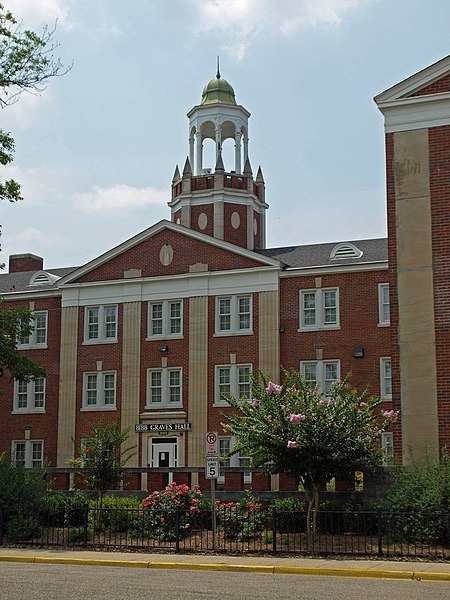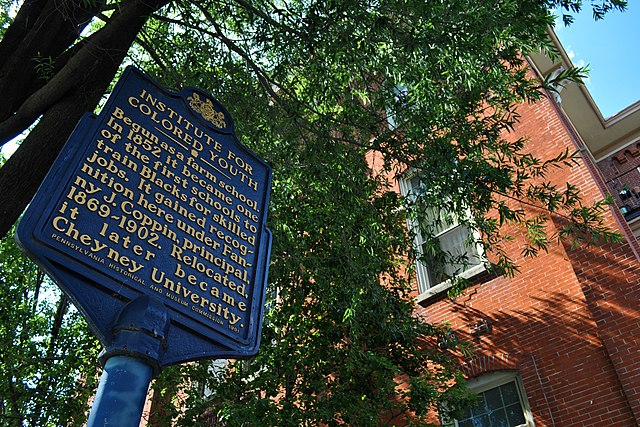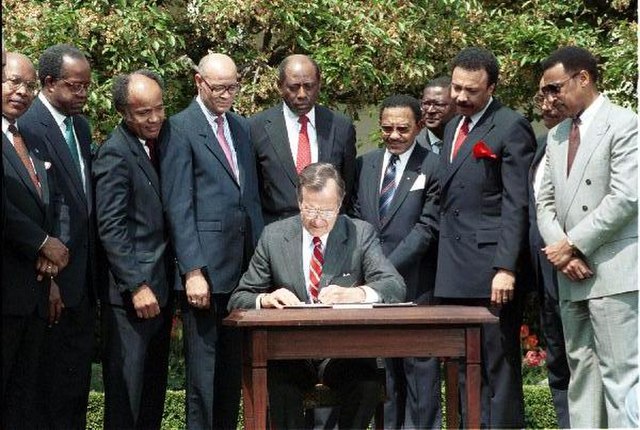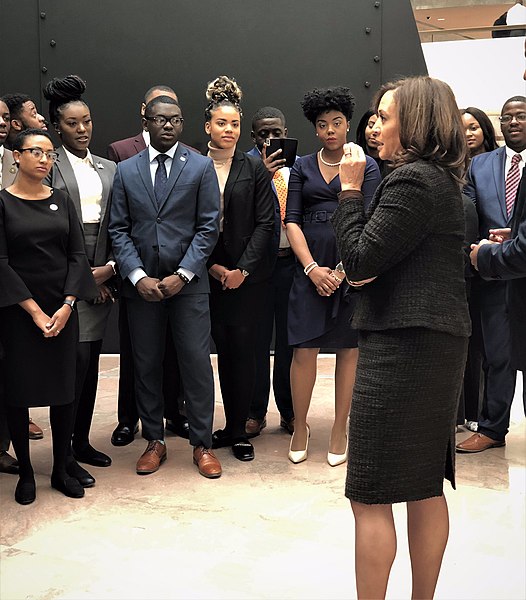Alabama State University is a public historically black university in Montgomery, Alabama. Founded in 1867, during the Reconstruction era, it was one of about 180 "normal schools" established by state governments in the 19th century to train teachers for the rapidly growing public common schools. It was one of 23 established to train African Americans to teach in segregated schools. Some of the 180 closed but most steadily expanded their role and became state colleges in the early 20th century and state universities in the late 20th century. ASU is a member-school of the Thurgood Marshall College Fund.
ASU campus building
The Hornets outdoor track team celebrating a victory at the 2023 SWAC Outdoor Track & Field Championship
The Mighty Marching Hornets and Sensational Stingettes
Historically black colleges and universities
Historically black colleges and universities (HBCUs) are institutions of higher education in the United States that were established before the Civil Rights Act of 1964 with the intention of primarily serving African Americans. Most of these institutions were founded during the Reconstruction era after the Civil War and are concentrated in the Southern United States. They were primarily founded by Protestant religious groups, until the Second Morill Act of 1890 required educationally segregated states to provide African American, public higher-education schools in order to receive the Act's benefits.
Cheyney University of Pennsylvania was founded in 1837 as the Institute for Colored Youth, making it the oldest HBCU in the nation
President George H. W. Bush signs a new Executive Order on historically black colleges and universities in the White House Rose Garden, April 1989
North Carolina A&T State University is the nation's largest HBCU by enrollment.
Vice President and HBCU alumna Kamala Harris with students attending HBCUs







